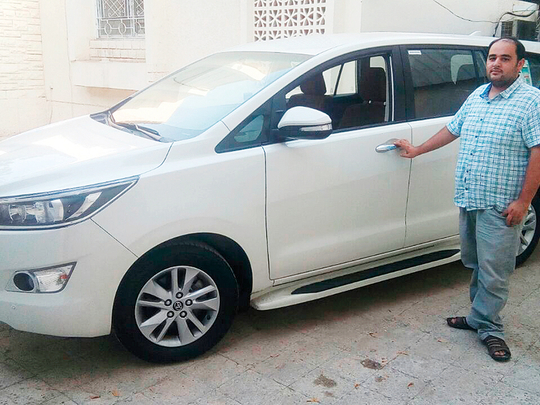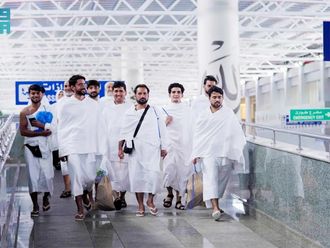
Jeddah: After the historic decision to reverse a ban on women driving in Saudi Arabia, thousands of family drivers, mainly from South Asia, fear that their services will no longer be needed.
For decades, Saudi women have depended tremendously on their drivers.
According to the General Authority for Statistics, there are almost 1.4 million family drivers in Saudi Arabia, constituting a whopping 60 per cent of foreign domestic workers.
With women finally able to drive, demand for family drivers could soon dwindle.
A report in Al Madinah newspaper stated that approximately 60 per cent of drivers risk losing their jobs.
Speaking to Gulf News, many family drivers say they are worried their services will no longer be required.
Saudi national Dhai Moawadh, who works as an executive secretary at Dr Samir Abbas Hospital, said, “Once I’m allowed to drive, why will I need a driver to take me to work or run errands?”
On an average, drivers in Saudi Arabia make between 1,500—2,200 riyals (Dh1,469-Dh2,155) a month. Many are the sole breadwinners for their families back home.
According to local analysts, drivers send about 60 per cent of their income to their home country, which collectively amounts to an estimated 1.23 billion Saudi riyals monthly.
Anwar, from India, used to work here as a driver for an upper middle class family for four years before becoming homesick and requesting his employers to send him back
“Back in New Delhi, I was not able to make ends meet as a family driver and the work was also too much,” he said, adding that he returned to Jeddah after two years.
Now, Anwar worries his employer will send him back.
Some Saudis who spoke to Gulf News said they are relieved that soon they will no longer have to rely on drivers.
Many Saudis complain that because women were dependant on drivers for almost everything, many chauffeurs would take advantage of them. Some drivers would allegedly not answer their phones, refuse to work on weekends, and accrue traffic tickets.
Some even went so far as to extort their employers and demand salary bumps each year, according to some Saudis. Saudi national Umm Ameen said, “Thank God for women being able to drive now as I won’t have to deal with my driver and his tantrums anymore. Every day he has some excuse or a story ready that revolves around money.”
An Indonesian driver, Seri, who works for a middle class family, said he typically asks his employer for a raise at the time of renewal of his contract every November, but this time he would not.
Pakistani driver, Ahmad Zia, works for an elderly Saudi woman. In addition to running her errands he makes extra trips to drop her daughter to and from university.
While he welcomes the decreased workload, he will also miss out on the extra pay he used to rake in.
To hire an expatriate driver from abroad and bring him to Saudi Arabia is not only taxing for families but also involves a lengthy and tiresome recruitment process.
It costs a family approximately 10,000 to 12,000 Saudi riyals upfront, which includes government, recruitment office, and visa fees, medical fitness tests, and air-ticket.
High cost of hiring a driver
Annually, it costs a family approximately 40,000 to 45,000 Saudi riyals.
The cost includes salary, housing, phone bills, residence permit and driving licence renewals, and medical insurance every year; and a return ticket once every two years.
Women’s driving would help reduce Saudi families’ financial burden exponentially, alongside encouraging them to enter the workforce.
Sadiya A Nadeem is a freelance journalist based in Jeddah












